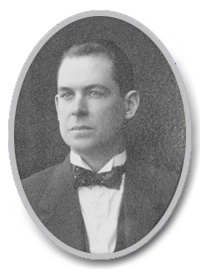John Gunn (Australian politician)
| John Gunn | |
|---|---|
 |
|
| 29th Premier of South Australia Elections: 1921, 1924 |
|
|
In office 16 April 1924 – 28 August 1926 |
|
| Monarch | George V |
| Governor | Sir Tom Bridges |
| Preceded by | Henry Barwell |
| Succeeded by | Lionel Hill |
| 18th Leader of the Opposition (SA) | |
|
In office 1918–1924 |
|
| Preceded by | Andrew Kirkpatrick |
| Succeeded by | Henry Barwell |
| 7th Australian Labor Party (SA) leader | |
|
In office 1918–1926 |
|
| Preceded by | Andrew Kirkpatrick |
| Succeeded by | Lionel Hill |
| Personal details | |
| Political party | Australian Labor Party (SA) |
John Gunn (16 December 1884 – 27 June 1959) was the 29th Premier of South Australia, leading the South Australian Branch of the Australian Labor Party to government at the 1924 election.
Gunn was born in Bendigo, Victoria, the second of nine children to a Scottish miner and his wife. Gunn's father died when he was young, forcing him to work as a delivery boy to support his mother and siblings while studying at night classes.
Gunn worked a variety of jobs in Melbourne and in the Western Australian timber mills before returning to Melbourne to marry Haidee Smith on 8 September 1908. They then moved to Adelaide where Gunn found work as a horse-lorry driver on the Port Road. He soon became the President of the South Australian branch of the Federated Carters and Driver's Union and organised the 1910 Drivers' Strike, which secured reduced working hours, although he made enemies in the wealthy and influential Adelaide Establishment, who considered him a dangerous communist.
Gunn's success with the Carters and Driver's Union led to his election as President of the United Trades and Labour Council of South Australia in 1911 and, as his star continued to rise, he was elected to Adelaide City Council in 1914, serving to 1916, when he became Federal President of the Federated Carters and Driver's Union.
"Greatly respected for his tactful courtesy and self-control", Gunn entered the South Australian House of Assembly at the 1915 election as a Labor member for the Electoral district of Adelaide. He soon emerged as a leading anti-conscriptionist in the bitter internal Labor fight over conscription which led to a split in the party. Resigning his seat, Gunn stood unsuccessfully for the federal House of Representatives Division of Boothby as an anti-conscriptionist candidate at the 1917 federal election but returned to state parliament by regaining his Adelaide seat at the 1918 state election.
...
Wikipedia
